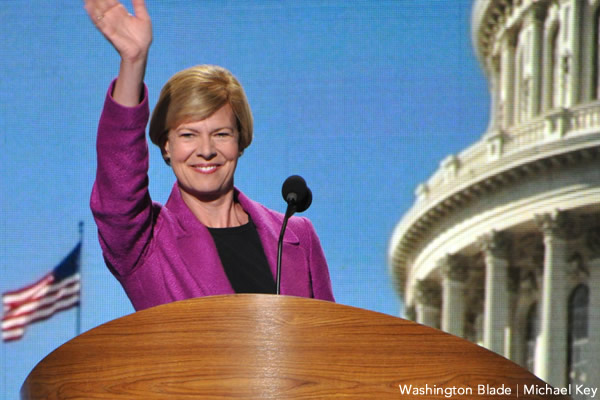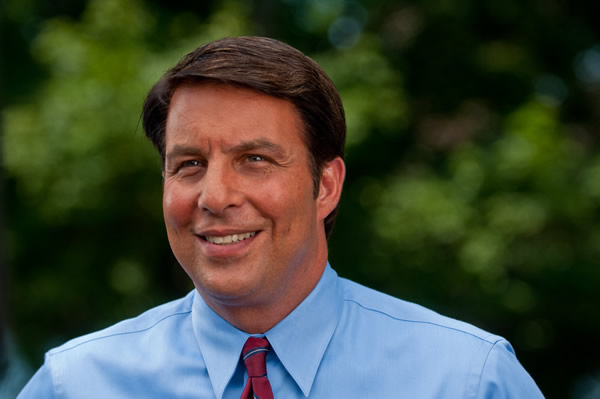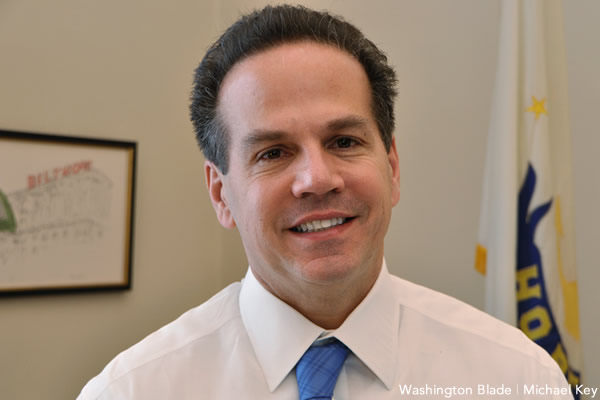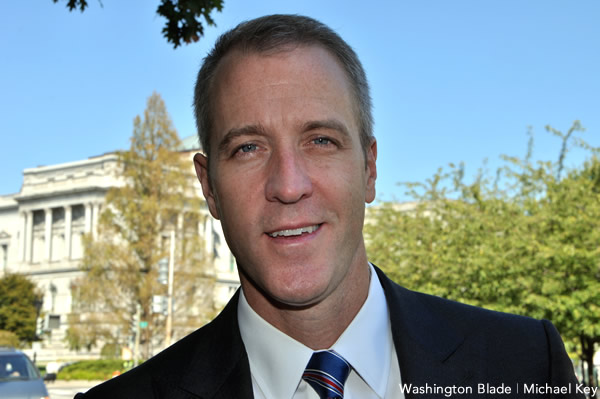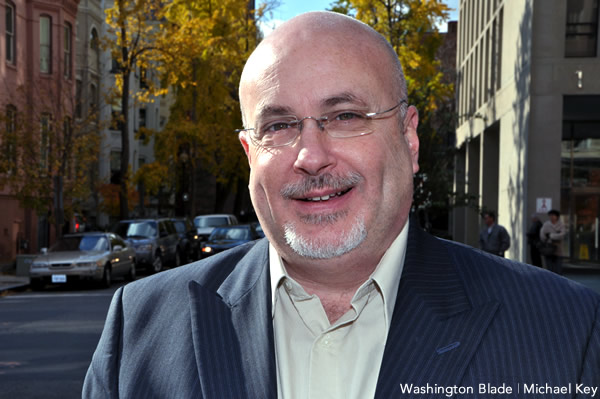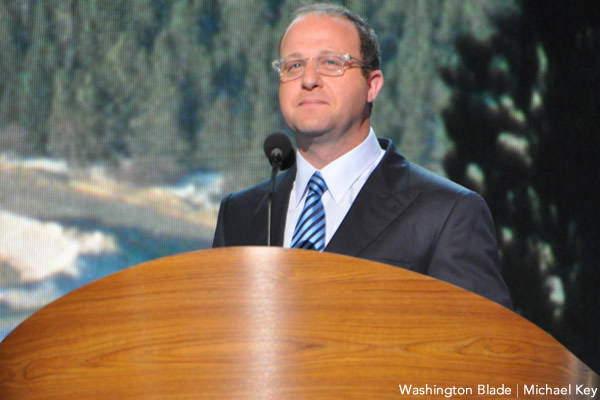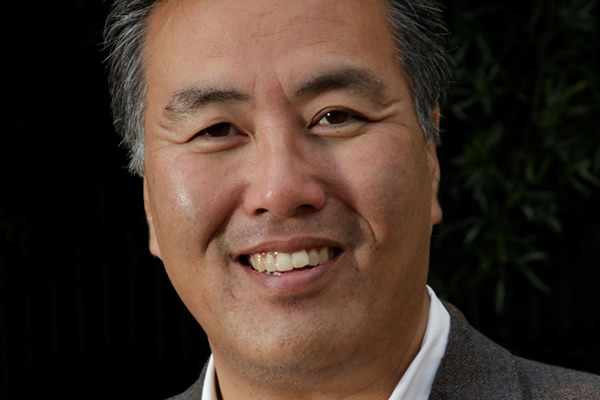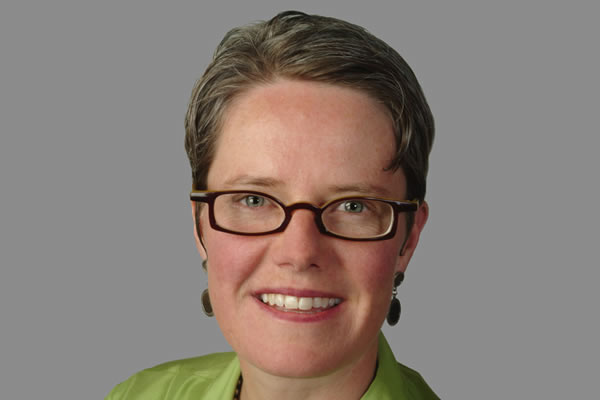News
9 races to watch as gays run for Congress
Baldwin seeks to become first openly gay senator
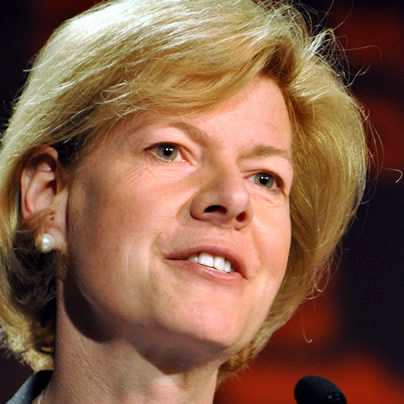
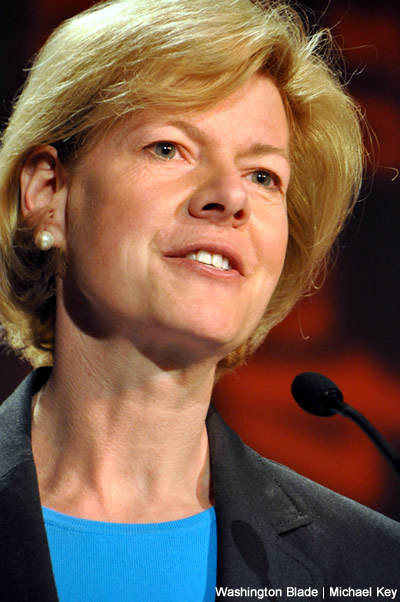
U.S. Representative Tammy Baldwin (D—Wisc.) is in a tight race against her state’s former governor, Tommy Thompson, for the state’s seat in the U.S. Senate. (Washington Blade file photo by Michael Key)
A record number of openly gay candidates running for Congress will face their critical test on Tuesday as many — including U.S. Senate candidate Tammy Baldwin — are seeing polls tighten as Election Day approaches.
HOW DO BARACK OBAMA AND MITT ROMNEY COMPARE ON LGBT ISSUES?
A total of nine openly gay, lesbian and bisexual candidates are seeking office in the U.S. House and U.S. Senate. With the retirement of gay Rep. Barney Frank, openly LGBT representation in Congress will look very different after next week.
Baldwin’s race is the most high-profile among these candidates because she’d be the first openly gay person elected to the U.S. Senate and the outcome of the race against Republican former Gov. Tommy Thompson may determine which party controls the chamber after the election.
Denis Dison, a spokesperson for the Gay & Lesbian Victory Fund, said all eyes will be on the race because — following the spike in polls that Baldwin enjoyed after her speech at the Democratic National Convention — the contest has become increasingly high-profile and competitive due to spending from outside conservative groups.
“I know groups like Karl Rove’s Crossroads GPS and Americans for Prosperity — also the U.S. Chamber [of Commerce] — I think the total amount is about $13 million they have spent on ads attacking Tammy,” Dison said. “That has caused the race to get very close.”
N.H. MARRIAGE EQUALITY AT STAKE IN GUBERNATORIAL RACE
For her part, Baldwin made public on Oct. 30 her closing TV ad showing workers and families as well as footage of her campaigning with former President Bill Clinton.
“One big difference between Tammy Baldwin and Tommy Thompson is that she stood up to the special interests, and he’s stood up for them,” Clinton says in a voice over. “If you put people first, it works better than trickle-down economics.”
Another race that will be closely watched is Massachusetts’ 9th congressional district — where gay Republican challenger Richard Tisei seems poised to beat Democratic incumbent Rep. John Tierney.
WHERE ARE YOU WATCHING ELECTION NIGHT?
New York’s 18th congressional district is another race of interest to the LGBT community. Gay Democrat Sean Patrick Maloney is seeking to unseat Republican U.S. Rep. Nan Hayworth, who has a pro-LGBT record in Congress and the backing of gay conservative groups.
In a statement to the Washington Blade, Maloney said the LGBT community should rally behind him because Hayworth has aligned herself with conservative groups.
“Tea Party Congresswoman Nan Hayworth doesn’t believe that my family is equal to hers or that members of the LGBT community deserve equal protection under the law,” Maloney said. “I think folks around the country, LGBT and otherwise, are tired of this extreme ideology.”
9 gay candidates to watch this election day
REP. TAMMY BALDWIN
Race: U.S. Senate seat in Wisconsin
Opponent: Republican former Wisconsin Gov. Tommy Thompson
Significance: Baldwin, a Democrat, would be first openly gay person elected to the U.S. Senate.
Polls: 10/28 Rasmussen Reports — Thompson 48, Baldwin, 47; 10/22 Mason-Dixon — Baldwin 47, Thompson, 45.
RICHARD TISEI
Race: U.S. House seat in Massachusetts, District 6
Opponent: Incumbent Democrat U.S. Rep. John Tierney
Significance: Tisei would be the first openly gay Republican elected to Congress as a non-incumbent and the only out Republican serving on Capitol Hill.
Polls: 10/1 Boston Globe — Tisei 37, Tierney 31.
REP. DAVID CICILLINE
Race: U.S. House seat in Rhode Island, District 1
Opponent: Republican challenger Brendan Doherty
Significance: Cicilline, a Democrat, is pursuing his first re-election effort since becoming the fourth sitting openly gay member of Congress in 2010.
Polls: 10/10 Brown University — Cicilline 46, Doherty 40.
SEAN PATRICK MALONEY
Race: U.S. House seat in New York, District 18
Opponent: Republican incumbent U.S. Rep. Nan Hayworth
Significance: Maloney, a Democrat, would be the first openly gay member of Congress from New York State.
Polls: 10/19 Siena College — Hayworth 49, Maloney 42.
O’MALLEY : MD MARRIAGE CAMPAIGN ‘IN GOOD SHAPE’
MARK POCAN
Race: U.S. House seat in Wisconsin, District 2
Opponent: Republican candidate Chad Lee
Significance: Pocan would replace Baldwin in the U.S. House.
Polls: The district is widely considered a Democratic safe seat and Pocan is expected to win.
REP. JARED POLIS
Race: U.S. House seat in Colorado, District 2
Opponent: Republican challenger Susan Hall
Significance: Polis is set to become the most senior openly gay member of the U.S. House.
Polls: The district is widely considered a Democratic safe seat and Polis is expected to win re-election.
KYRSTEN SINEMA
Race: U.S. House seat in Arizona, District 9
Opponent: Republican candidate Vernon Parker
Significance: Sinema, a Democrat, would be the first openly bisexual person elected to Congress.
Polls: 10/16 Summit Consulting Group —Parker 44, Sinema 42.
MARK TAKANO
Race: U.S. House seat in California, District 41
Opponent: Republican candidate John Tavaglione
Significance: Takano, a Japanese-American Democrat, would be the first openly gay person of color elected to Congress.
Polls: 8/21 EMC Research — Takano 42, Tavaglione 38
GAY DELAWARE STATE SENATE CANDIDATES POISED TO MAKE HISTORY
NICOLE LEFAVOUR
Race: U.S. House seat in Idaho, District 2
Opponent: Republican U.S. Rep. Mike Simpson
Significance: LeFavour, a Democrat, isn’t endorsed by the Gay & Lesbian Victory Fund.
Polls: The district is widely considered a Republican safe seat and Simpson is expected to win.
Federal Government
UPenn erases Lia Thomas’s records as part of settlement with White House
University agreed to ban trans women from women’s sports teams

In a settlement with the Trump-Vance administration announced on Tuesday, the University of Pennsylvania will ban transgender athletes from competing and erase swimming records set by transgender former student Lia Thomas.
The U.S. Department of Education’s Office for Civil Rights found the university in violation of Title IX, the federal rights law barring sex based discrimination in educational institutions, by “permitting males to compete in women’s intercollegiate athletics and to occupy women-only intimate facilities.”
The statement issued by University of Pennsylvania President J. Larry Jameson highlighted how the law’s interpretation was changed substantially under President Donald Trump’s second term.
“The Department of Education OCR investigated the participation of one transgender athlete on the women’s swimming team three years ago, during the 2021-2022 swim season,” he wrote. “At that time, Penn was in compliance with NCAA eligibility rules and Title IX as then interpreted.”
Jameson continued, “Penn has always followed — and continues to follow — Title IX and the applicable policy of the NCAA regarding transgender athletes. NCAA eligibility rules changed in February 2025 with Executive Orders 14168 and 14201 and Penn will continue to adhere to these new rules.”
Writing that “we acknowledge that some student-athletes were disadvantaged by these rules” in place while Thomas was allowed to compete, the university president added, “We recognize this and will apologize to those who experienced a competitive disadvantage or experienced anxiety because of the policies in effect at the time.”
“Today’s resolution agreement with UPenn is yet another example of the Trump effect in action,” Education Secretary Linda McMahon said in a statement. “Thanks to the leadership of President Trump, UPenn has agreed both to apologize for its past Title IX violations and to ensure that women’s sports are protected at the university for future generations of female athletes.”
Under former President Joe Biden, the department’s Office of Civil Rights sought to protect against anti-LGBTQ discrimination in education, bringing investigations and enforcement actions in cases where school officials might, for example, require trans students to use restrooms and facilities consistent with their birth sex or fail to respond to peer harassment over their gender identity.
Much of the legal reasoning behind the Biden-Harris administration’s positions extended from the 2020 U.S. Supreme Court case Bostock v. Clayton County, which found that sex-based discrimination includes that which is based on sexual orientation or gender identity under Title VII rules covering employment practices.
The Trump-Vance administration last week put the state of California on notice that its trans athlete policies were, or once were, in violation of Title IX, which comes amid the ongoing battle with Maine over the same issue.
Congress
House Democrats oppose Bessent’s removal of SOGI from discrimination complaint forms
Congressional Equality Caucus sharply criticized move

A letter issued last week by a group of House Democrats objects to Treasury Secretary Scott Bessent’s removal of sexual orientation and gender identity as bases for sex discrimination complaints in several Equal Employment Opportunity forms.
Bessent, who is gay, is the highest ranking openly LGBTQ official in American history and the second out Cabinet member next to Pete Buttigieg, who served as transportation secretary during the Biden-Harris administration.
The signatories to the letter include a few out members of Congress, Congressional Equality Caucus chair and co-chairs Mark Takano (Calif.), Ritchie Torres (N.Y.), and Becca Balint (Vt.), along with U.S. Reps. Nikema Williams (Ga.), Hank Johnson (Ga.), Raja Krishnamoorthi (Ill.), Delia Ramirez (Ill.), Joyce Beatty (Ohio), Lloyd Doggett (Texas), Eleanor Holmes Norton (D.C.), Josh Gottheimer (N.J.), and Sylvia Garcia (D-Texas).
The letter explains the “critical role” played by the EEO given the strictures and limits on how federal employees can find recourse for unlawful workplace discrimination — namely, without the ability to file complaints directly with the Employment Opportunity Commission or otherwise engage with the agency unless the complainant “appeal[s] an agency’s decision following the agency’s investigation or request[s] a hearing before an administrative judge.”
“Your attempt to remove ‘gender identity’ and ‘sexual orientation’ as bases for sex discrimination complaints in numerous Equal Employment Opportunity (EEO) forms will create unnecessary hurdles to employees filing EEO complaints and undermine enforcement of federal employee’s nondiscrimination protections,” the members wrote in their letter.
They further explain the legal basis behind LGBTQ inclusive nondiscrimination protections for federal employees in the EEOC’s decisions in Macy v. Holder (2012) and Baldwin v. Foxx (2015) and the U.S. Supreme Court’s decision in Bostock v. Clayton County (2020).
“It appears that these changes may be an attempt by the department to dissuade employees from reporting gender identity and sexual orientation discrimination,” the lawmakers wrote. “Without forms clearly enumerating gender identity and sexual orientation as forms of sex discrimination, the average employee who experiences these forms of discrimination may see these forms and not realize that the discrimination they experienced was unlawful and something that they can report and seek recourse for.”
“A more alarming view would be that the department no longer plans to fulfill its legal obligations to investigate complaints of gender identity and sexual orientation and ensure its
employees are working in an environment free from these forms of discrimination,” they added.
Latin America
Protests, demands for rights define Pride month in Latin America
More than 3 million people participated in São Paulo march

Activists across Latin America marked Pride month with massive demonstrations, cultural activities, and demands that their countries guarantee equality and protect LGBTQ people from violence.
From Santiago, Chile, to Mexico City, activists took to the streets to celebrate the rights that have been won and the many that are still pending.
Chile
The Pride march that the Movement for Homosexual Integration and Liberation (Movilh) and Fundación Iguales organized took place in downtown Santiago, the country’s capital, on June 22. Authorities and the two organizations say more than 120,000 people participated.
Under the slogan “Pride with memory and hope,” marchers demanded lawmakers approve a bill that would allow reparations for LGBTQ Chileans who Gen. Augusto Pinochet’s dictatorship targeted. There were also calls for the government to promote an LGBTQ-inclusive educational reform.
“This time we are marching on high alert,” said Movilh spokesperson Javiera Zúñiga. “For the first time in decades, we are losing achieved rights. We demand the state wake up. The reform of the Zamudio Law has been stalled for 13 years.”
Marches also took place in Valparaíso, Antofagasta, Temuco, and Concepción, highlighting the growing visibility of transgender groups and feminist organizations.
Mexico
Mexico City on June 29 was the epicenter of one of the region’s largest Pride marches.
More than 300,000 people participated in the march. Comité IncluyeT organized the 46th annual march under the slogan “Not one step back: rights are respected.”
Several organizations denounced the increase in hate crimes — Mexico’s National Observatory of Hate Crimes notes more than 80 LGBTQ people have been reported murdered in the last year. They also urged Mexican lawmakers to criminalize transfeminicides across the country.
Argentina
Although Buenos Aires’s official Pride march takes place in November, the Argentine LGBT+ Federation and other groups in the Argentine capital and in other cities across the country in June organized activities.
More than 5,000 people on June 24 marched from Plaza de Mayo to the Argentine Congress to reject the government’s dismantling of public policies. President Javier Milei’s decision to eliminate the country’s Women, Gender, and Diversity Ministry and cut sexual health programs were among the moves the protesters denounced.
“Today Pride is also resistance to the adjustment,” pointed out Comunidad Homosexual Argentina, an LGBTQ advocacy group.

Colombia
Thousands of people in Bogotá, the Colombian capital, and the cities of Medellín, Cali, and Barranquilla marched on June 29.
The marchers’ slogan was “diversity is also peace,” in a context where violence against LGBTQ people remains high. Caribe Afirmativo, a Colombian LGBTQ rights group, notes more than 45 people from the community has been reported killed in the country over the last 12 months, with most of them trans women.
Organizations also demanded lawmakers resume debate of a bill that would extend comprehensive protections to LGBTQ Colombians. The measure has been stalled in Congress since 2023.
Brazil
More than 3 million people participated in the 28th São Paulo LGBTQ+ Pride Parade that took place on the city’s Paulista Avenue on June 22.
The parade took place under the slogan “LGBT+ social policies: we want the whole thing, not half of it.” Organizers demanded expanded access to health care, employment, and education for the most vulnerable communities, especially Black trans people. They also denounced ultraconservative figures who seek to curtail LGBTQ rights.
Peru and Paraguay
More than 15,000 people took part in a Pride march in Lima, the Peruvian capital, on June 28. Participants demanded lawmakers approve a trans rights law, which has been stalled in the Peruvian Congress since 2016, and recognition of civil unions.
Members of SomosGay, a Paraguayan LGBTQ rights group, and other organizations participated in a Pride march that took place in Asunción, the country’s capital, on June 29.
The march took place without incident, despite threats and anti-LGBTQ hate speech on social media. Participants demanded an end to anti-LGBTQ discrimination and rhetoric from social and religious groups.
Central America
Upwards of 2,000 people participated in a Pride march in Tegucigalpa, the Honduran capital, on June 22. A Pride demonstration took place in San Salvador, the capital of neighboring El Salvador, on June 28.
-

 U.S. Supreme Court4 days ago
U.S. Supreme Court4 days agoSupreme Court upholds ACA rule that makes PrEP, other preventative care free
-

 U.S. Supreme Court4 days ago
U.S. Supreme Court4 days agoSupreme Court rules parents must have option to opt children out of LGBTQ-specific lessons
-

 Television5 days ago
Television5 days ago‘White Lotus,’ ‘Severance,’ ‘Andor’ lead Dorian TV Awards noms
-

 Music & Concerts5 days ago
Music & Concerts5 days agoBerkshire Choral to commemorate Matthew Shepard’s life

